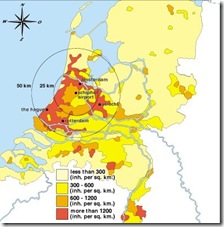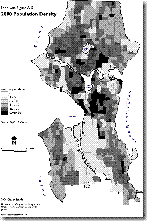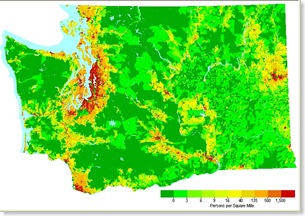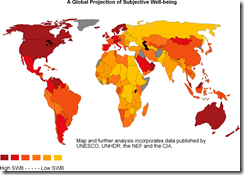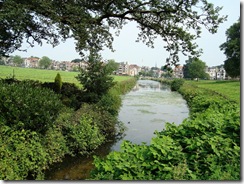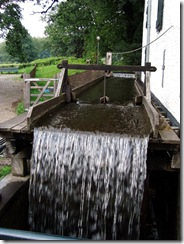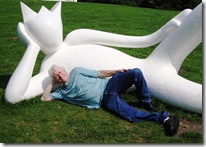How crowded is the Netherlands
 Friends often tell me that the Netherlands is the most densely populated spot in Europe, with 16.4 million people in an area of 16,000 square miles: an average density of over 1000 per square mile (1). Yet it feels spacious to Americans: the drive from Utrecht to Arnhem consists of fields and forests, punctuated by occasional low-rise villages. Even approaching the Arnhem city center, there is little evidence of a city until you reach the final kilometer before the central ring road. And the surrounding neighborhoods are mostly low-story row-houses and offices, bordered by parks.
Friends often tell me that the Netherlands is the most densely populated spot in Europe, with 16.4 million people in an area of 16,000 square miles: an average density of over 1000 per square mile (1). Yet it feels spacious to Americans: the drive from Utrecht to Arnhem consists of fields and forests, punctuated by occasional low-rise villages. Even approaching the Arnhem city center, there is little evidence of a city until you reach the final kilometer before the central ring road. And the surrounding neighborhoods are mostly low-story row-houses and offices, bordered by parks.
The general impression is of a much less dense country as compared to most American city / suburb regions. (reinforced by the Dutch Masters: the Philips Koninck's painting "Distant view with Cottages Lining a Road" (1655, above) is typical)
Time to put it to the test.
Washington state, my home, has 6.4 million people in an area of 71,000 square miles, an average density of 88.6 per square mile, less than a tenth of the Netherlands. (2) Still, I would argue that the state has large areas of rugged mountains running up it's center and arid deserts covering half the state to the east. This crowds people into the narrow coastal lowlands running through Seattle and Tacoma, perhaps making it seem denser than it is.
The King County area, extending through Seattle east across suburbs like Redmond (home of Microsoft) to the Cascade mountain foothills, might be a better comparison. It has an area of 2,307 sq miles and holds 1.7 million people, for an average density of 816 per square mile, much more comparable to the Netherlands. (3)
At a city level, the King County registrar publishes detailed density maps (4) for Seattle (6,901 per square mile (5)). But, even at a city level, Amsterdam has a total area of 84.6 square miles with 0.751 million people, for a density of 11,548 per square mile, 14 times denser than King County (4), and half again as dense as Seattle.
At least New York City is greater at 27,000 per square mile (6)!
The conclusion is that, by most measures, the Netherlands is, indeed, much denser than corresponding American regions. It does leave me wondering why the feeling is so uncrowded (off of the A12, at least...).
PS: 'Headed to the Ardennes for the weekend, so I want to close the week on an up-note (and map related). A University of Leicester psychologist has published the World Map of Happiness, based on her research. The Netherland's (before the recent heat wave) scored 15th; the US was number 23; UK was 41. The variables correlating most with happiness were wealth, health, and education (of course, what is causal amongst the group?).
'enjoy the weekend!
Labels: Everyday life in the Netherlands, US / Dutch Contrasts, US Perspectives
